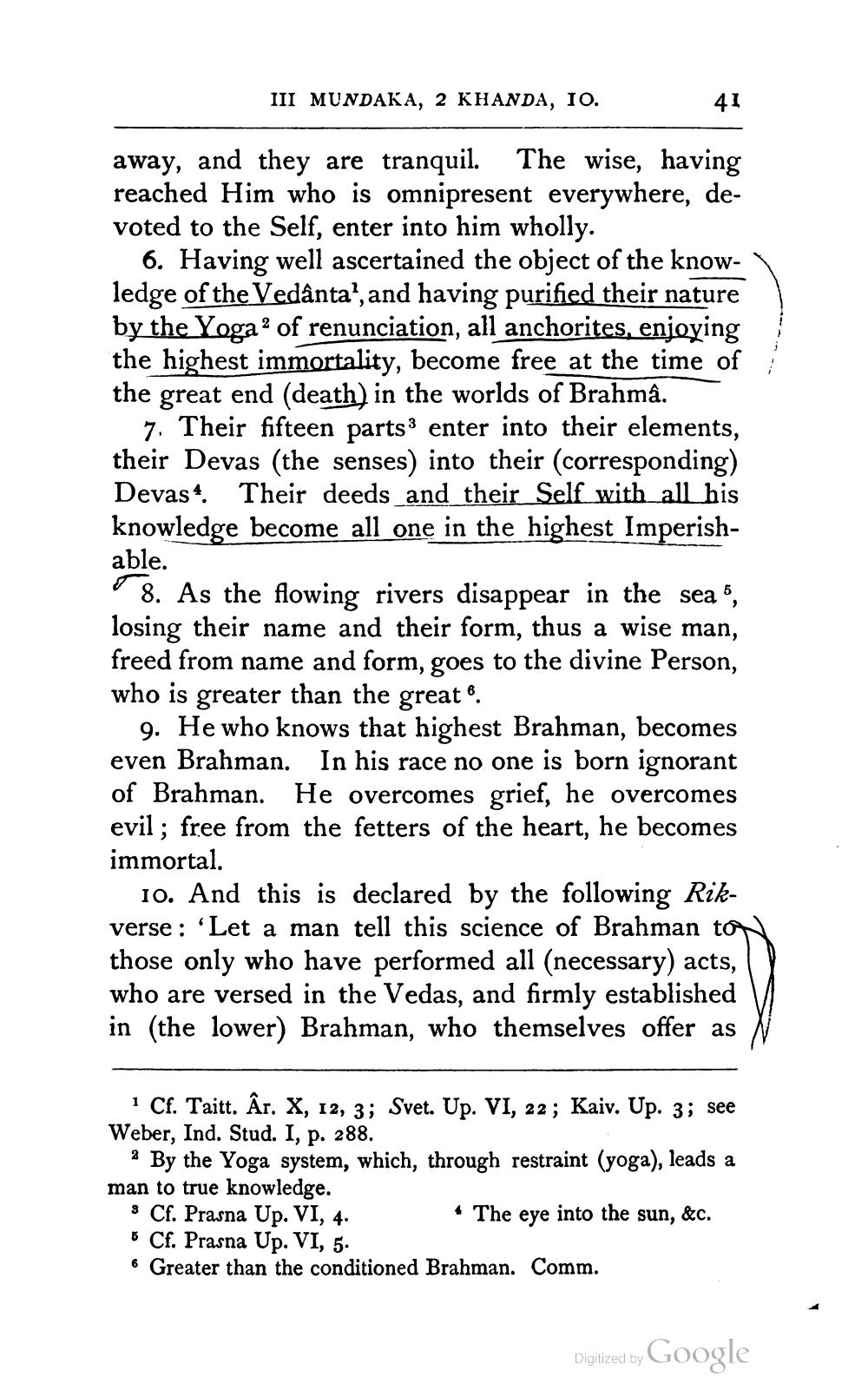________________
III MUNDAKA, 2 KHANDA, 10.
41
away, and they are tranquil. The wise, having reached Him who is omnipresent everywhere, devoted to the Self, enter into him wholly.
6. Having well ascertained the object of the knowledge of the Vedanta', and having purified their nature by the Yoga? of renunciation, all anchorites, enjoying the highest immortality, become free at the time of the great end (death) in the worlds of Brahmâ.
7. Their fifteen parts: enter into their elements, their Devas (the senses) into their (corresponding) Devas“. Their deeds and their Self with all his knowledge become all one in the highest Imperishable.
8. As the flowing rivers disappear in the sea 5, losing their name and their form, thus a wise man, freed from name and form, goes to the divine Person, who is greater than the great 6.
9. He who knows that highest Brahman, becomes even Brahman. In his race no one is born ignorant of Brahman. He overcomes grief, he overcomes evil ; free from the fetters of the heart, he becomes immortal.
10. And this is declared by the following Rikverse: ‘Let a man tell this science of Brahman tar those only who have performed all (necessary) acts, who are versed in the Vedas, and firmly established in (the lower) Brahman, who themselves offer as N
1 Cf. Taitt. Âr. X, 12, 3; Svet. Up. VI, 22 ; Kaiv. Up. 3; see Weber, Ind. Stud. I, p. 288.
a By the Yoga system, which, through restraint (yoga), leads a man to true knowledge. 8 Cf. Prasna Up. VI, 4.
The eye into the sun, &c. Cf. Prasna Up. VI, 5. 6 Greater than the conditioned Brahman. Comm.
Digitized by
Digitized by Google




